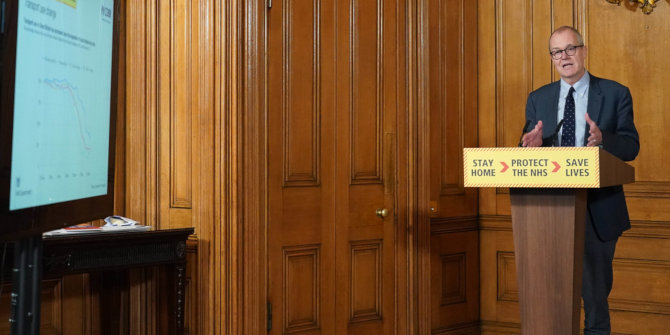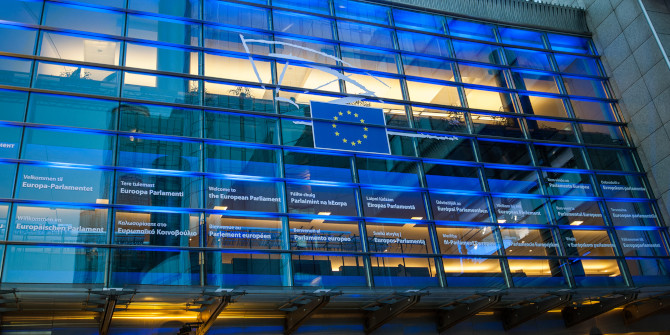In 2022, the Spanish government passed a law intended to bring justice to the victims of the country’s civil war and subsequent dictatorship under Francisco Franco. Michael Albertus writes that while Spain’s history of authoritarianism may now be fading into the past, it has left enduring marks on Spanish society.
Nearly fifty years after its transition to democracy, Spain continues to grapple with its authoritarian past. Late last year, the country’s Socialist prime minister, Pedro Sánchez, passed a law of “Democratic Memory” that aimed to bring justice, reparation and dignity to victims of Spain’s civil war from 1936-1939 and the subsequent dictatorship of Francisco Franco that endured into the 1970s. That law has fuelled long-simmering tensions over what constitutes justice in Spain and what role that plays in deepening the country’s democracy.
Francoism and the civil war
Spain is viewed around the world as a card-carrying member of Europe’s vaunted democratic club of nations. Notwithstanding centuries of struggle and virulent and brutal episodes of war and dictatorship that lasted into the twentieth century, Europe emerged toward the end of the twentieth century as a global model of advanced and inclusive democracy. Countries in the region regularly top all major lists of democratic quality, equity and even happiness. But that masks deep scars that many of Europe’s democracies bear from their authoritarian pasts.
Ongoing flirtation with populism and xenophobia as well as tussles over social safety nets and social and gender issues reflect in part residual struggles in the making of democracy. Spain is an emblematic example. When General Franco died and his authoritarian regime crumbled, politicians made a “pact of forgetting”. Major political parties forged a 1977 amnesty law that gave immunity to perpetrators of war crimes from the civil war that culminated in Franco’s rise as dictator. The rationale was that prodding wounds from the past might destabilise the new democracy.
But it is hard to forget when bodies keep showing up in unmarked mass graves. The most recent legislation builds on similar legislation in 2007 aimed at addressing the past. It makes the government responsible for exhuming and using DNA evidence to identify an estimated 100,000 victims of Francoism from the civil war era. It mandates educational curricula to teach about the civil war and the dictatorship rather than brushing it under the rug or glossing over it. And it outlaws the Franco regime and provides pardons for anyone convicted of political crimes by the regime.
Government control
Political parties across the spectrum have staked out positions on this process and it is shaping elections, government formation and budgets. Advocates of a more muscular approach argue that the law is too weak by failing to call for public testimonies from victims, reparations, prosecutions, or investigations into institutional collaborators of the regime. Similarly overlooked is the fact that the focus on war crimes and outlawing political entities ignores the experiences and legacies of the daily grind of authoritarianism over the course of four decades.
One underappreciated but important example is Franco’s ambitious rural settlement programme. Once in power, Franco quickly sought to undercut destabilising pressure from the landless that helped contribute to the civil war and to stoke economic growth. He launched an enormous rural resettlement programme that eventually constructed nearly 300 new farming villages from scratch across the country and built over 30,000 houses. As part of the programme, the government built massive irrigation works and constructed critical infrastructure like roads and electricity. Settlers applied to live in these towns and received land, housing and inputs, generating initial optimism and enthusiasm.
That optimism eventually sagged under the suffocating weight of authoritarian control. The government put settlers in a state of limbo by withholding title to their houses and land. They forced settlers to pay for everything – including the salaries of bureaucrats who worked in the settlement agency – on vague and ever-longer timelines. They surveilled settlers and treated them paternalistically. All of this fostered settler fear and dependency, and solidified government control over their lives.
The scars of the past
My research shows that when the dictatorship finally gave way to democracy, settlers began voting against the ideological successors of Francoism. Most eventually got their property titles. But largely, they were cast adrift and forgotten, left to forge their own paths in Spain’s new democracy.
As politicians agreed to forget the past, people in these communities could not manage the same. Many to this day recall shame, disappointment, and bitterness. And while it is hard to track among settler families, research on the intergenerational transmission of trauma gives reason to believe that settlement experiences have shaped opportunities across generations and formed social outlooks.
The troubling reality is that while dictatorship may fade into the past, its marks are enduring. They are borne not only by victims of outright violence but also by those who suffer manipulation and indignity at the hands of authoritarianism. Democracies that aspire to deepen must at least open up dialogue over those marks, even if they don’t come to shared agreement over what to do about them.
For more information, see the author’s accompanying paper in the Journal of Politics
Note: This article gives the views of the author, not the position of EUROPP – European Politics and Policy or the London School of Economics. Featured image credit: Marques/Shutterstock.com




